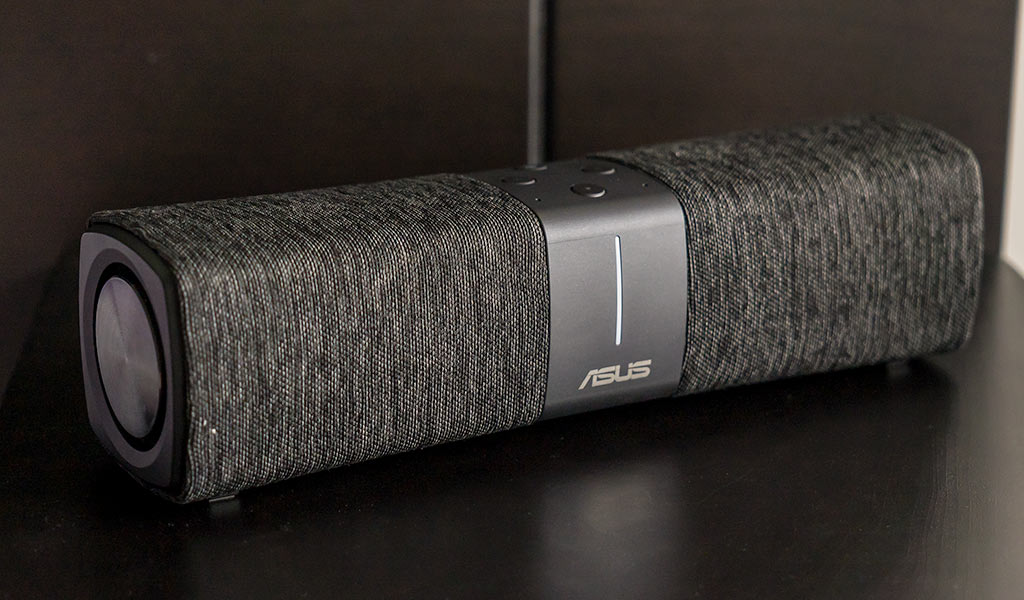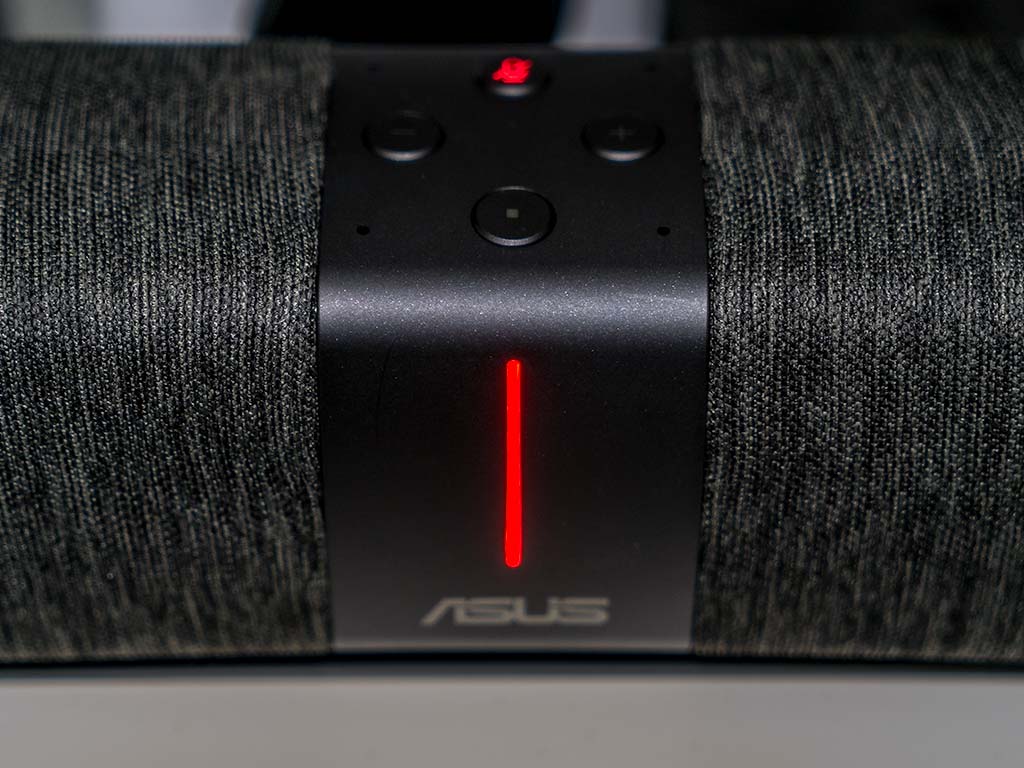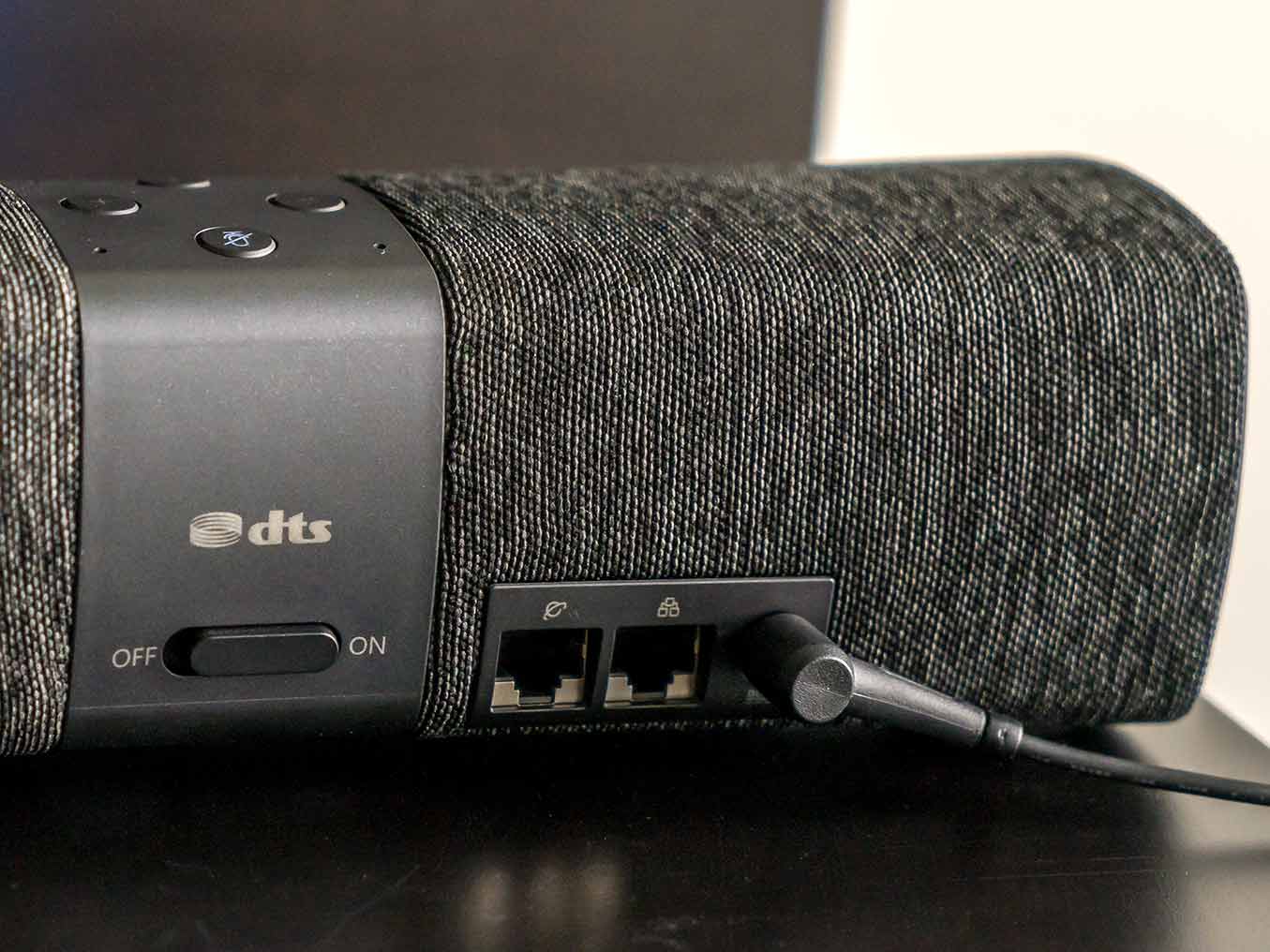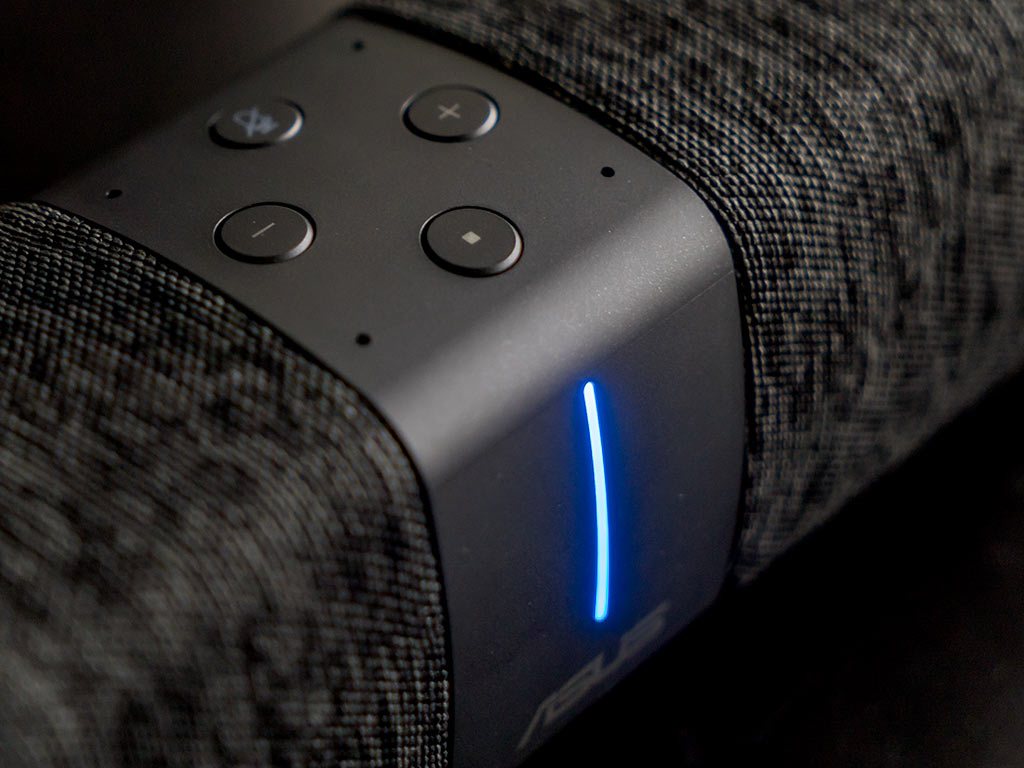
Routers usually have one job to do, but when it comes to the Asus Lyra Voice, audio playback and voice control are part of the performance package.
The thing about routers is that they are vitally important to distributing good Internet signals throughout a home or business, yet once physically set up, they’re often left alone to do their job. And despite more recent efforts toward better aesthetics and mesh networking, most routers usually end up in a corner somewhere. Out of sight and out of mind, unless something goes wrong with the network.
Asus’ Lyra Voice takes a different approach. It’s not just a router, but also a speaker. It has Amazon’s Alexa voice assistant built-in. You can use it as a standalone router, part of an Asus AiMesh whole home Wi-Fi mesh system, or as a repeater for an existing Wi-Fi network.
Design and setup
At first glance, the Lyra Voice looks more like a speaker than it does a router. The fabric lining covering it, and passive radiators flanking the ends make that fairly evident. The four-button array at the top is also reminiscent of the Echo Dot, Amazon’s entry-level voice-controlled speaker.
Once you look at the back, the router features come out. There is one WAN and one LAN Ethernet port, plus a power plug and on/off switch. On the inside, the Lyra Voice is a tri-band AC2200 mesh router with bells and whistles that should, at least on paper, make it a strong distributor of a Wi-Fi signal.
Setting it up is pretty easy through the free Asus Router app for iOS or Android. You don’t have to be tech-savvy to do it, either, though the app does have a number of features and settings that might confuse novices who won’t know what they mean. For instance, under the More section, QoS (Quality of Service) lets you prioritize bandwidth by usage or task. Bandwidth Limiter does the opposite, cutting off or throttling access to a specific device.
For this review, I set up the Lyra Voice as a standalone router. I didn’t have an AiMesh router to use the Lyra Voice as a mesh point, but that’s certainly possible. The advantage in that scenario is that you have a mesh point somewhere in the home that doubles as an audio speaker.
Despite the fact there are no protruding antennas or bulky hardware, the Lyra Voice is a pretty capable product in its own right. Asus crammed seven antennas inside, helping the router cover an average-sized home. Condos and apartments will be easy, whereas bigger homes may want to use this as part of a whole home mesh network.

Alexa integration
Integrating Alexa into a router might seem like overkill. Why add a voice assistant to a utility device? It depends on where and how you deploy it. If it’s nestled away somewhere where contact will be minimal, you get many purposes out of it that way. But if it’s set up somewhere with greater foot traffic or presence, then it’s a different story. For example, a living room or home office would fit that bill.
The beauty of this setup is that it doesn’t require a back-and-forth with the Alexa app. During setup on the Asus app, I logged into my Amazon account, which then made the Lyra Voice an Alexa speaker in my network. Within minutes, I was playing music through it from Spotify.
The mute button at the top of the device silences Alexa, but doesn’t stop audio playback. If you already have other Alexa devices set up in your home, keeping it quiet isn’t a bad idea. When Alexa does talk, it functions the same way as other third-party Alexa speakers do. You don’t get the full complement of features Echo speakers do, like phone calls, but everything else is there. Control smart home devices, ask for information, set up reminders and request music. Almost all the countless Alexa Skills available are there to use.

Performance
There is no doubt the Lyra Voice will be an upgrade from whatever router your Internet Service Provider (ISP) gives you. That’s more an indictment against the subpar hardware ISPs use, but in any case, Asus offers an upgrade here.
I particularly tested the Lyra Voice in a home where a mesh network with a single node was deployed to expand the signal. What I wanted to see was how well the router would work on its own in covering the same square footage. For the most part, it handled itself really well, maintaining a steady flow of bandwidth throughout.
The problem was that throughput declined the further I was from it. Totally understandable, as that’s how routers generally work. Go further away and the signal weakens, thus degrading throughput. There were times where streaming from multiple devices caused some performance hiccups, but I was able to mitigate that by setting up QoS to prioritize that kind of network traffic.
The advanced features may go over your head if you don’t recognize what they are, but it’s worth trying to learn them. The network diagnostic tool helps gauge how well everything is running. Firmware updates aren’t automatic, so it’s important to keep the Lyra Voice updated. Setting up a guest network is a great way to get visiting friends and family online.
The lack of LAN ports in the back could be problematic if you have various products needing the physical connection. Some smart home products use hubs to communicate across the network, as do network storage drives and VoIP phone lines. If you need more ports, you’ll have to get a switch.

Audio quality
The Lyra Voice isn’t going to shake the ground with its audio performance, but it’s still a reasonably good speaker. I would compare it to a mid-range Bluetooth speaker. Not super crisp and loud, but still clear and resonant enough to fill smaller rooms with decent sound. That’s more than I can ask for from a router that has a built-in speaker.
The real value in having a speaker in this is that it can effectively replace a Bluetooth or Alexa speaker of a similar calibre. It’s not going to match a Sonos One, of course, but it’s good enough to challenge Bluetooth speakers that are north of $100.
Final thoughts
I like what Asus tried to do here. Router versatility has often focused on network performance, which makes total sense, but the company has tried to do that and more with the Lyra Voice. The Alexa and Bluetooth speaker integration is cool, and works pretty seamlessly. And that’s on top of the fact you can use this as part of an Asus AiMesh setup, or as a network repeater—even when the central router is from another brand.
That means you can keep your existing router, and have a triple use case of an extender, speaker and voice assistant all in one device. It’s rare to come across that kind of scenario in a router. If you think you could benefit from the unique combination of features, you may like what Asus did here as well.
The Asus Lyra Voice is available now.




Sounds to be a fantastic boost for Seniors who are still “with the program”.
Comments are closed.